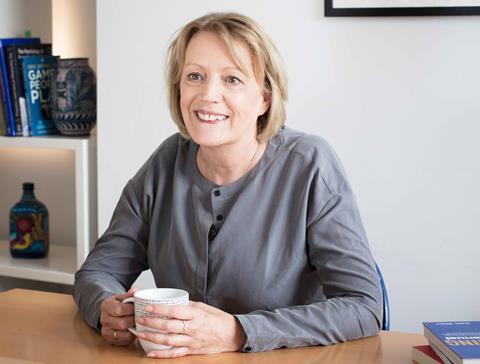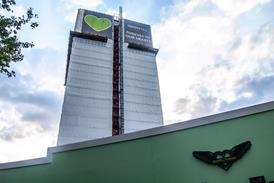Our present isolation can make work all-consuming and intensify small dramas. Louise Rodgers offers advice on how to step back

“Keep a sense of perspective” is a well-meaning but ultimately pointless bit of advice.
It is generally intended as a reminder to be less caught up in your own particular life or work dramas, or less emotional about your particular circumstances. It’s the kind of thing you say to someone who is fretting over a missed deadline, an imperfect piece of work or a minor conflict with a colleague.
Everyone has a perspective, or even multiple perspectives, depending on their mood or the situation they find themselves in. Their way of seeing things is determined by these factors, and many others, and that doesn’t make it wrong. But it might just make it narrow.
So it’s the right kind of perspective that we want to remind people about: the kind that represents the longer, or wider, view.
Recently I’ve noticed that for many of my clients a sense of perspective has been elusive. This is particularly so when people live alone and have been working mostly from home for what has now been an extended period of time.
All the usual distractions of single life: watching or playing sport, live music, theatre, eating out, a hobby or interest involving others, and spending time with friends or family have mostly been denied us for a while now. For some, this means their perspective has narrowed down to their laptop and the kitchen table.
One of the risks to our wellbeing in this situation is that we can find it hard to keep things in perspective. Work has become even more important than it was before and may even have become a displacement activity. After all, if we are working, we are not worrying. This may mean that minor setbacks at work, the kind we might in “normal” times shrug off and move on from unscathed, have more of an ability to throw us off course or even really upset us.
When I’ve been coaching people in this situation I know that simply asking them to keep a sense of perspective is not going to cut it. But I do encourage them to explore other ways of looking at the incident or the situation.
We can’t necessarily choose our instant, split-second reactions and emotions
Whether you work with a coach or not, a “reframe” or perspective shift is a powerful tool for overcoming setbacks and moving forward positively.
The goal of reframing is to expand your vision so that you can consider a wider range of interpretations of what’s happened, or a wider range of ways to move forward. It invites a broader, more creative exploration of the issue in front of you.
Start by identifying your current perspective. For example, if you’re dealing with a set-back at work you might be in the “I will never bounce back” mindset, or viewing things from the “I have let everybody down” perspective. Spend some time exploring where you are, perhaps with the help of the following questions:
Is this true?
What evidence do I have that this is true?
How does this perspective make me feel?
What does it get me?
What’s possible from this perspective?
What’s the benefit of having this perspective?
What’s the cost of having this perspective?
The next inquiry is to examine whether there may be an alternative way of looking at the situation. It’s like moving around a room and viewing the same object from multiple angles. Try on different narratives. Is there one that feels more authentic and accurate and is more helpful to the navigation of the challenge at hand?
Foundational to our wellbeing is the recognition that our cognitive responses are not fixed, solid truths but are in fact viewed through an interpretive lens. We can’t necessarily choose our instant, split-second reactions and emotions, but when we bring greater mindful awareness to them we can create a space in which we have greater choice about how to proceed, what we are going to tell ourselves going forward and ultimately where we should focus our attention.
Postscript
Louise Rodgers is Building Design’s professional coach. A personal and business coach, she co-created and co-delivers Step Up, a leadership development programme for architects.
















No comments yet